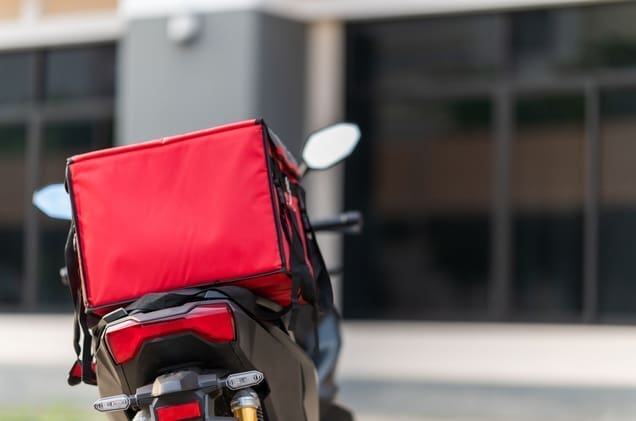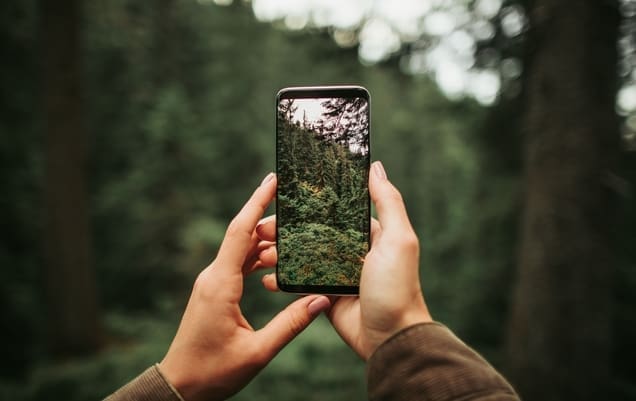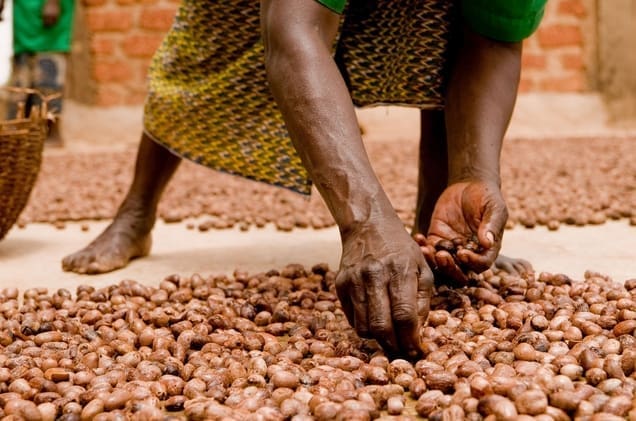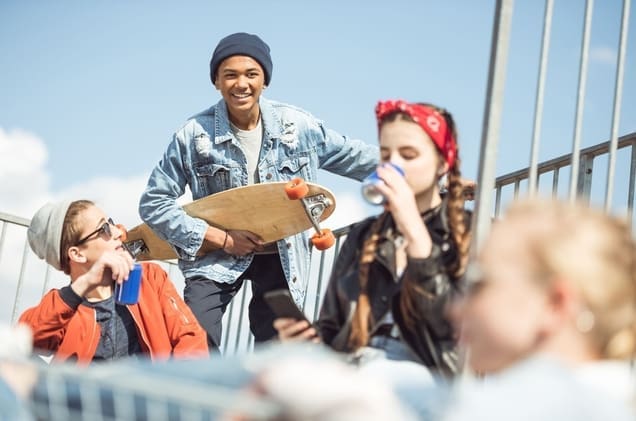Hotspots brings you the Mintel Trends team’s top observations on product and service launches from around the world. From an art initiative that repurposes take-out boxes to raise social awareness of delivery drivers to an outdoor recreational brand creating content to shift perceptions of the outdoors, check out the most innovative global initiatives happening this month.
Meals with Messages – China
The Rider Meal Box Plan is an art initiative in Xi’an, which rents out insulated take-out boxes that display artistic messages to improve the social visibility of delivery drivers while providing them with extra income. For only RMB10 (US $1.50), anyone can rent the space for five days, as long as it is for non-commercial use.
Since April, the project has recruited over 50 food delivery drivers to ride with meal boxes emblazoned with expressive slogans. The messages range from light-hearted words (‘Have you eaten chillies today?’) to those that aim to raise awareness of certain issues (‘Depression is not shameful’). This art initiative is part of a larger collective called Co-Governance Space in Xi’an. The group puts together recreational activities and dialogues for delivery drivers, among other events. The Rider Meal Box Plan has so far received about 300 slogans from students, white-collar workers, artists and activists, and has even branched out to other cities including Beijing and Guangzhou.
China Central Television (CCTV) reports that there are more than 7 million delivery workers in the country. The plight of delivery workers who work long and strenuous hours has increasingly come under the spotlight. Platforms are berated for their lack of concern for the welfare of these workers. The fairness of their compensation and reward system is also in question. Even as the platforms are re-examining their treatment of delivery workers, brands and consumers are coming together to help these under-represented members of society get their voices heard and their working conditions improved.
Victoria Li – Trends Analyst, APAC
REI Media – US
REI has launched an in-house studio to produce content that shifts perceptions of the outdoors. The studio, known as Co-op Studios, will produce films, podcasts and editorial programs. The first piece of content is called The Trees Remember and it will be a three-part scripted series that explores the connection to nature through the stories of three Black women. REI is prioritizing diversity and inclusion across the environmental content it creates, demonstrating how initiatives in one area can complement and support initiatives in other areas.
Brands have always existed as storytellers and influential platforms, but as traditional platforms for sharing stories get saturated with a wide variety of content we’re increasingly seeing brands find a more direct way to share compelling stories. Ben & Jerry’s recently launched its own podcast in partnership with Vox Media to discuss the history of racism in America. It’s no surprise Ben & Jerry’s has built up a reputation for being invested in advocating for social justice and a wide range of social issues, which creates an inherent trust in launching this podcast. Similarly, REI has built a reputation for being experts in outdoor lifestyles which provides the necessary foundation for being a storyteller that consumers will pay attention to.
Diana Kelter – Senior Trends Analyst, US
Neutralise Your Emissions – Australia
A new online platform is helping motorists who can’t yet switch to an electric vehicle directly offset one year’s worth of carbon emissions from the average car. Go Neutral customers pay AUD$90 to offset 3.2 tonnes of carbon dioxide, which is about what the average car produces each year. The company then uses that money to buy carbon credits generated by environmental projects around Australia. Customers receive a bright orange car bumper sticker, designed to be highly visible to other drivers. In May, the company was acquired by carbon farming firm Green Collar, which means that Go Neutral’s carbon credits will be directly linked to Green Collar’s environmental projects so customers can see exactly where their money is going. Projects include land regeneration and improving soil carbon and livestock management.
While the idea of carbon offsetting is not new, it’s difficult for consumers to get involved on an individual level. Electric vehicles are gaining momentum but in Australia they are still expensive and charging stations are not easy to come by, meaning widespread uptake is still a few years away at least. Consumers are still keen to take action in the meantime, however, and offsetting one’s own vehicle emissions is a good way for them to feel as though they’ve at the very least mitigated their own impact on the environment and contributed to projects that have a positive effect on the world, while they wait for alternatives to become more realistic and accessible. Likewise, the bright orange sticker lets consumers ‘virtue signal’ which can help to normalise individual efforts towards carbon neutrality while electric vehicles remain out of reach for the average driver.
Elysha Young – Trends Manager, APAC
Savannah Soap – Netherlands
Savannezeep soap contains shea butter and shea honey from the Sahel region with its sales supporting projects restoring biodiversity and sustainable business opportunities for women in the area. The soap was created in partnership with artisanal soap manufacturer Werfzeep and Birds, Bees & Business, a joint project to create structural solutions to restore biodiversity and alleviate poverty. Shea butter comes from the West African region of Sahel, south of the Sahara desert. The area is suffering from desertification and deforestation, threatening trees, migrating birds, local bee populations and people’s livelihoods. Collection and processing of shea tree nuts are traditionally done by women, and the Birds, Bees & Business project helps them sustainably improve this process, organise cooperatives and find buyers for their product.
Increased awareness of the unsustainable impact of current consumption habits and manufacturing systems, as well as the poverty and struggles global workers face, has meant consumers are seeking options that are more ethical and sustainable. We are seeing brands launch products that help support both people and the environment, with sustainably sourced ingredients and initiatives that empower workers and communities. Products with such qualities are appealing to consumers who want their purchases to have meaning and a positive impact on the world they live in.
Liisa Kontas – Trend Analyst, Nordic
Positive Soda – Colombia
With a focus on teens and wellness, Pony Malta has changed its slogan, highlighting the benefits of losing. Up until now, Pony Malta’s image was anchored on the tagline “A champion’s drink,” but its brand new strategy calls for more optimism. Seeking to support teens in their emotional wellness journey, the company’s new claim is “It is fine to lose.” The new slogan was introduced with a campaign highlighting the reasons and occasions in which losing should be celebrated. Featuring sentences such as “#ItIsFineToLose the fear to falling if that’s gonna make me a better sports player” and “#ItIsFineToLose 40% of sugar content if we win a healthier and flavorsome drink,” Pony Malta is proving that losing isn’t all that bad.
In 2019, Pony Malta launched its Vital line which is reduced in sugar but still maintains its traditional flavor. After this launch, the brand decided to continue safeguarding the health of kids and, thus, undertook the role of wellness partners for parents. With adults always concerned about their children’s health, brands like Pony Malta are switching strategies in a bid to promote healthier lifestyles and positive messages. In this context, lowering sugar and sodium content is proving to be insufficient since health is being approached in an holistic way, in which mental wellness is taking up more space. With this in mind, both parents and kids are becoming more aware of the effects ads have on youngsters’ emotional wellness. A brand that promotes unattainable beauty standards or success-oriented messages will not be perceived as an ally. Aware of this, companies are updating their strategy in a bid to have an overall positive impact on kids’ lives.
Diana Kelter – Senior Trends Analyst, US












































